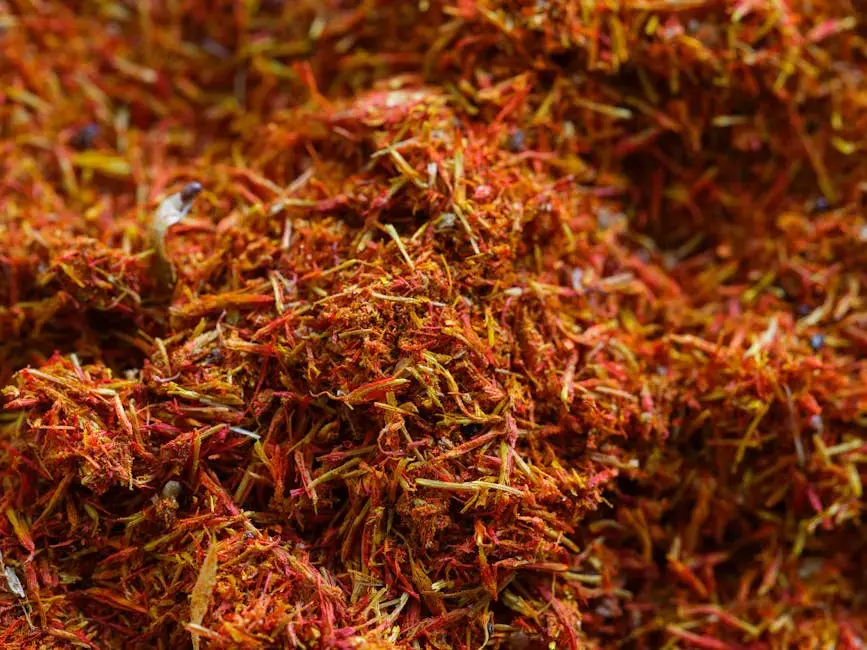15 Mediterranean Spices to Enhance Your Cooking Skills
- Chelo
- Aug 30, 2025
- 3 min read
The Mediterranean diet is renowned worldwide for its health benefits and delightful flavors. At the heart of Mediterranean cuisine is a vibrant palette of spices that elevate dishes to culinary masterpieces. In this blog, we'll explore some of these spices that can transform your everyday meals into Mediterranean feasts.

1. Aromatic Allure of Oregano
Oregano is a fundamental spice in Mediterranean cuisine, known for its robust and slightly peppery flavor. Often paired with tomato-based dishes, it complements pizzas, pastas, and grilled meats beautifully. Traditionally dried to intensify its flavor, oregano infuses a dish with a sense of warmth and homeliness. Greek oregano, known for its slightly spicier profile, is a must-try variant. It's interesting to note how oregano has been linked with boosting the immune system due to its antibacterial qualities, making it not just a flavorful addition but a beneficial one, too.
2. Culinary Charm of Rosemary
Rosemary adds a fragrant pine-like aroma to dishes. Its versatility allows it to be used with roasted vegetables, meats, and even in baking, adding a fresh and earthy flavor. Beyond its bold taste, rosemary is celebrated for its antioxidant properties, potentially aiding in digestion and improving concentration. A simple sprig of rosemary can transform a humble potato dish into a gourmet delight. It's pretty fascinating how this aromatic herb is integral to many cold and hot plates not just in the Mediterranean but beyond.
3. The Zest of Basil
Basil is celebrated for its sweet and slightly spicy profile. Widely used in sauces, salads, and as a garnish, it brings a fresh burst of flavor to any dish. The fragrant leaves of basil, fresh or dried, are an essential element in the classic Pesto alla Genovese, which epitomizes the vibrant taste of Italy’s Ligurian region. Known for its anti-inflammatory properties, basil also offers more than just flavor.
4. Saffron’s Golden Touch
Saffron, known as the world's most expensive spice, imparts a unique honeyed and floral note to dishes. It's essential in Mediterranean paellas and risottos for its vibrant color and flavor. Its vivid hue and distinct taste are born from a painstaking process where thousands of crocus flowers are hand-harvested. The culinary prestige of saffron goes beyond its price; it adds a depth to rice dishes that transforms the mundane into the magical.
5. The Versatility of Thyme
Thyme’s subtle earthiness makes it a staple in Mediterranean cooking. It's perfect for soups, stews, and as a seasoning for meats, providing a woody, slightly minty flavor. Thyme not only enhances the flavor of various dishes but is also known for its antibacterial properties. Its ability to blend seamlessly into spice mixes such as za’atar allows chefs to craft an array of complex and sophisticated flavors.
6. Coriander’s Citrus Surprise
Coriander seeds offer a slightly lemony taste with a warm, nutty nuance. Used in spice blends and rubs, it adds a distinct flavor profile to Mediterranean dishes. Whether ground or whole, the seeds are often toasted to release their full aroma, unlocking a powerful citrus burst that makes any dish pop. The greenery of the plant, known as cilantro, is often used fresh, providing a wonderful contrast to the seeds' deeper flavor.
7. Paprika’s Peppery Warmth
Paprika provides a sweet, smoky, or spicy kick depending on its variety. It enhances the flavor and color of stews, chorizo, and grilled vegetables. The spice is derived from ground chili peppers, and its varieties range from mild to hot, lending itself to a spectrum of culinary uses. A dash of paprika can turn your humble dish into a vibrant and flavorful exploration, especially in classic dishes like Spanish chorizo.
8. Cumin’s Earthy Essence
Cumin seeds have a warm, earthy flavor with a slightly bitter undertone. Used in spice blends, it’s key in giving depth to soups, stews, and meat dishes. Cumin is a favorite in Mediterranean cooking because of its ability to enhance the other spices it’s paired with, crafting a symphony of taste. Beyond its flavor, cumin is known for its digestive benefits, making it a great addition to hearty meals.
9. Fennel’s Sweet Anise Note
Fennel seeds bring a mildly sweet and licorice-like flavor. Perfect for seasoning fish and poultry or incorporating into sausage recipes. The seeds are often toasted before use, releasing aromatic oils that invigorate dishes. Fennel's subtle sweetness is a soothing contrast to more pungent spices, providing balance and depth to Mediterranean cuisines.
10. Fenugreek’s Unique Edge
Fenugreek seeds are slightly bitter with a hint of maple syrup sweetness. Used judiciously, they add complexity to spice mixtures and curries. In the Mediterranean, this spice is often blended into condiments and pickles, offering a distinctive taste that stands out in a mélange of flavors. Fenugreek is also noted for its health benefits, claimed to lower blood sugar levels, which adds another layer of interest to this spice.




Comments